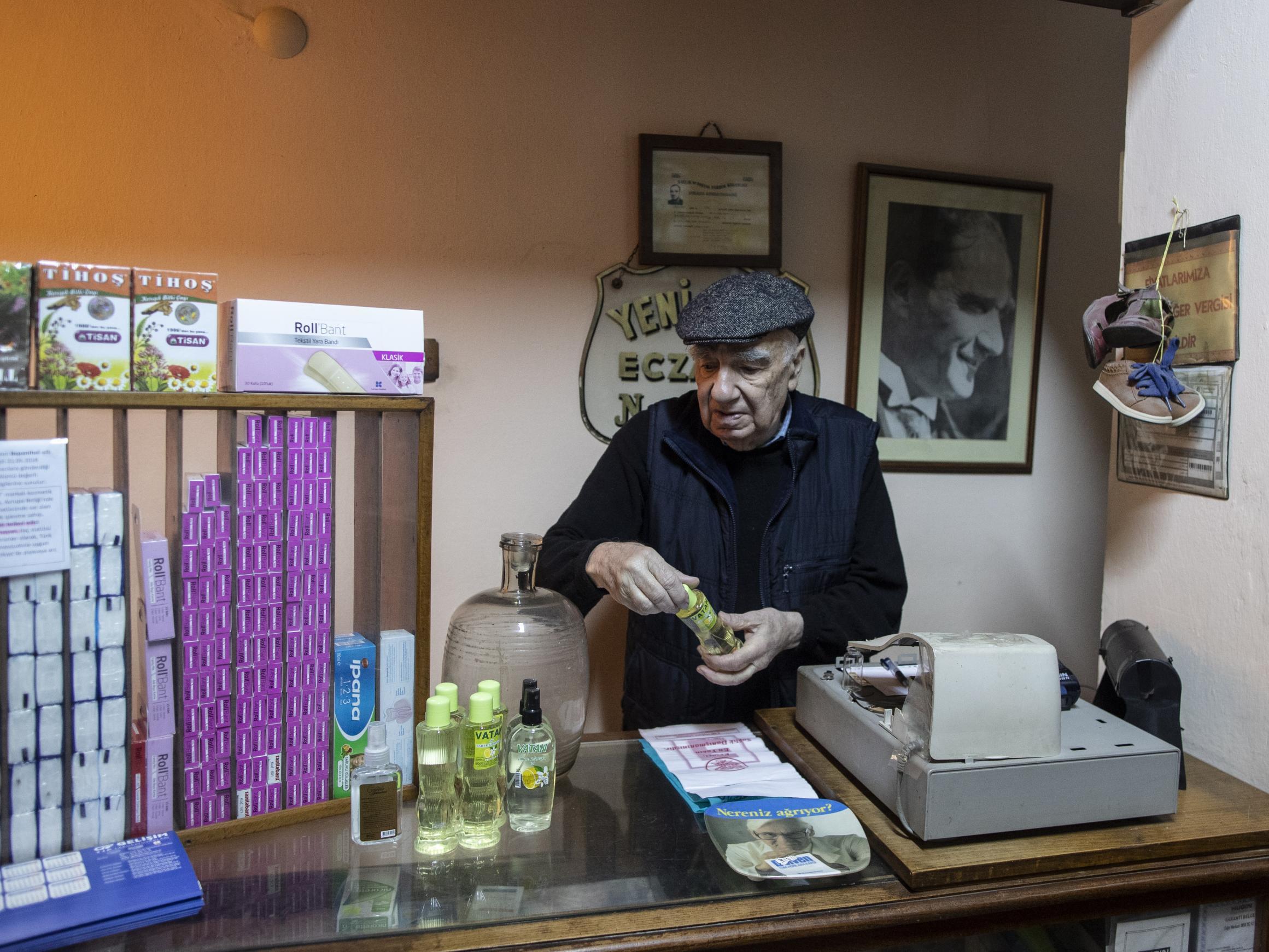Disinfectant, methanol and UV rays: The dangerous coronavirus ‘remedies’ touted worldwide
Fake information has come from world leaders, social media – and the Kremlin, Jane Dalton reports


Donald Trump speculated on injecting patients with bleach or disinfectant to treat coronavirus; Brazilian president Jair Bolsonaro called a day of prayer and fasting in response to the pandemic, and President Alexander Lukashenko of Belarus advised citizens that drinking vodka and playing sport would prove a cure.
Demonstrating a profound absence of understanding of the menace of viruses and their effects, certain world leaders could fairly be accused of contributing to the maelstrom of fake, dangerous public health information on treating Covid-19.
Despite the World Health Organization’s stating there are no specific treatments for the disease, and despite official advice on handwashing, not touching your face and – if you must sneeze – doing so into your elbow, various unproven and even absurd remedies have been widely touted and shared on the internet. So much so that Facebook was forced to start showing messages to people who have interacted with misinformation to guide them to official advice from the organisation.
When the US president mused on whether injections of disinfectant may be able to kill the virus in the body, he was widely mocked for it, but none the less New York revealed a spike in cases of disinfectant exposure in the 18 hours afterwards.
The city’s poison control centre treated 30 cases – more than double the number over the same period last year.
Mr Trump also floated the idea of exposing patients to “ultraviolet or just very powerful light”. But experts say neither sitting in the sun nor heating the body combats viruses in a person’s system.
Meanwhile, Mr Bolsonaro, who was swept into power on a wave of popularity in 2018, downplayed the crisis, branding it “a little flu”, despite reluctantly declaring a national emergency on 3 February. Attacking regional governors for lockdowns that have caused job losses, he was dismissive of social distancing measures, urging Brazilians to get back to work rather than stay at home.
The president has endorsed chloroquine – after the World Health Organization said there was no definitive evidence it worked, instead encouraging citizens to call on God to “free Brazil from this evil”. Instead of the lockdown measures most other nations around the world have implemented, Mr Bolsonaro apparently thought a day of prayer and fasting would do the trick.
And Mr Lukashenko mocked what he calls the “panic” gripping countries that have imposed lockdowns to minimise deaths.
But the leaders with a lack of understanding are not the only sources of disinformation that has worried health chiefs worldwide. Other lies that have hoodwinked people have been spread deliberately by more sinister sources, it appears.
A myth that a mixture of sodium bicarbonate, lemon, vitamin C and zinc killed the virus circulated on social media, while washing hands was ineffective. The EU diplomatic service later warned in a report that the fabricated theories had originated from the Kremlin.
The service said more than 150 cases of pro-Kremlin disinformation on Covid-19, adding that Russia and China were “carpet-bombing Europeans with coronavirus lies”, EU Observer reported.
Some material with “potential to inflict tangible harm on people’s health” was shared 1.7 million times and seen by more than 117 million people, according to the service, which says it exposes disinformation cases originating in pro-Kremlin media that are spread across the EU.
The diplomats highlighted dangerous “delusions” such as a finding that a third of British people thought vodka was an effective hand-sanitiser.
In the Middle East, hundreds of Iranians reportedly died and more than 1,000 fell ill after consuming methanol believing it could help cure the coronavirus.
Desperate people have clung to various suggestions, including alcohol, which is banned in the Islamic Republic.
A video broadcast on Iranian networks showed a five-year-old boy who had apparently gone blind after his parents gave him the liquid. He was hooked up to breathing apparatus in hospital.
In their anxiety to find a remedy, some countries, including France, have flirted with anti-malarial drugs chloroquine, and a derivative, hydroxychloroquine, after both presidents Trump and Bolsonaro said they were effective. But the US Food and Drug Administration has warned against using them outside hospitals because they have not been shown to be safe and can cause abnormal heart rhythms.
A study of Covid-19 patients in a French hospital suggested nicotine could have a preventive effect, leaving politicians scrambling to issue warnings of the dangers of smoking.
The UK’s own Medicines and Healthcare products Regulatory Agency (MHRA) has warned people not to be taken in by products ranging from self-testing kits to “antiviral misting sprays” sold online.
Other fake theories popular on social media that have been widely debunked by experts include the ideas that sitting in a sauna or aiming a hairdryer up the nose can kill the virus.
Karine Le Roch, a professor of cell biology at the University of California, Riverside, said: “There is absolutely no evidence that the Covid-19 virus can be treated via heat.”
A spokesperson for the UK’s National Pharmacy Association told The Independent: “Numerous outlandish claims, bizarre suggestions and false cures have been doing the rounds on social media. Thankfully, most people are heeding professional advice, not falling for fake news.
“Pharmacy teams are happy to advise on the appropriate use of medicines to treat symptoms of Covid-19, although it’s very important that people with the virus, or displaying symptoms, don’t come to the pharmacy in person.
“Pharmacists can also advise on ways to maintain your general health during the lockdown.”
An MHRA spokesperson said: “Do not use disinfectants as a treatment for Covid-19, as this can cause death.
“Disinfectants are dangerous substances, injecting or drinking them will poison you and applying them externally can damage your skin, eyes and cause lung problems.
“Please follow NHS Covid-19 advice and approved treatments if you suspect you have the virus.”
In response to Mr Trump’s UV light idea, she added: “Irradiating coronavirus patients’ bodies with UV light is not a licensed treatment to treat Covid-19 and there is no scientific evidence supporting this claim.
“Exposure to UV light is dangerous, as it can damage your skin and your eyes.”
The World Health Organisation’s myth-busting advice also debunks such claims.
Join our commenting forum
Join thought-provoking conversations, follow other Independent readers and see their replies
Comments